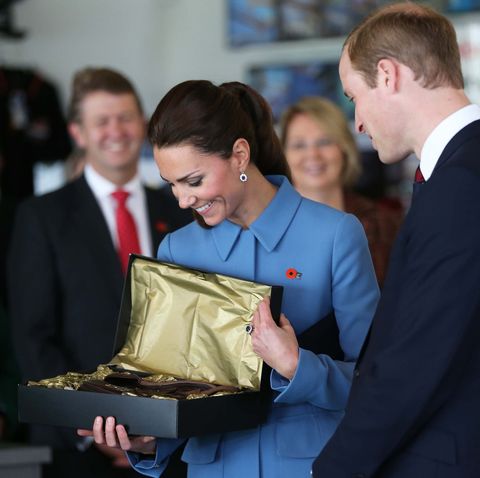Psychoanalysing Gift-Giving
"What we find in our work is that thoughts count pretty importantly for the givers.""Putting a lot of thought, spending time thinking about what a recipient might like tends to make the givers feel closer and more connected to a receiver.""If thoughtfulness comes not from the amount of thought you put into a gift but just from the fact that you were thinking about somebody and you got them something -- maybe when they weren't expecting it -- that's really meaningful."Nicholas Epley, John Templeton Keller Professor of Behavior Science and Director of the Center for Decision Research at the University of Chicago Booth School of Business"We think that people would prefer something we've chosen for them rather than what they've explicitly asked for. When in fact, people actually like when they get a gift that they actually like.""Giving love is a blessing and so is receiving love. One doesn't have to be superior to the other.""[Givers often] only think as far as what it's like to be the instantaneous recipient of a gift. They think a showy, expensive present -- will really drop jaws to the floor, and it might.""[But] the gift giver walks away from the interaction and the recipient is left with a beautiful, expensive thing that collects dust..."Marisa G.Franco, psychologist, friendship expert"Givers often end up overshooting, getting things that are maybe more unique or more narrow than what the receiver might want.""They'd rather have that Visa gift card or Amazon gift card that allows them to get whatever they want or need."Mary Steffel, Associate Professor of Marketing, Northwestern University
 |
Samir Hussein Getty Images |
Research he conducted, states Dr. Epley from his academic perch as a professor of behavioural science, points out that when people receive gifts it can be seen how much they appreciate the gift by their reaction expressing the 'dominant effect' of the gift. Insider knowledge; how well the giver knows the preferences of the recipient plays a dominant role in this type of transaction. Even so, in some situations the perceived thought that led to the choice of gift plays a dominant role.
In some instances people's aversion to simply giving cash or gift cards reflecting their perception that it's too impersonal acts as a deterrence in that type of choice. The practical choice of a gift card can be viewed as a lazy decision, taking the easy road rather than investing in the anxious mind search to think of what a particular person would appreciate most from a giver. Recipients, on the other hand, may have a decided preference for gift cards, but hesitate to make that suggestion for fear of offending.
People on the receiving end who are given experiential gifts like event tickets, gift certificates to restaurants or special trips, tend to feel more emotionally fulfilled, more connected than those who receive merely material gifts, and a greater attachment to the thoughtful nature of the gift giver, according to results of multiple studies published in the Journal of Consumer Research in 2016,
According to Dr.Steffel, a benefit of giving experiences relates to a person's time expenditure making them feel enriched by the experience. "Time-poor" people tend to value a gift that endows them with the gift of time. "You can buy them time by hiring a babysitter for them so that they have the space to go out and spend their time in ways that are satisfying for them."
Additionally those very special gifts that needed a lot of effort put into them; for example, something handmade, or an item that took an extensive search; can be important ways in which givers can "symbolically show just how much they care", explained Dr. Steffel. More ideally, added Dr.Franco, a gift that someone took additional effort into acquiring is best when it reflects what the recipient is known to want for themselves.
A heartfelt gift can sometimes take on the guise of sentimentality, according to experts where research shows that givers' inclination is to move away from sentimentality to avoid awkwardness, whereas in reality potential recipients in actual fact appreciate gifts with emotional value attached.
Sam Maglio, a consumer psychologist who co-authored a paper in 2017 studying effects of buying a gift for someone that you also bought for yourself, states: "sharing is caring". Relaying the information to someone being gifted that the giver thought that an item they bought first for themselves and thought so highly of they felt inspired to give a like item to someone else, is a spur to the giftee appreciating the item all the more.
Dr.Franco spoke as well of the obligation of appreciation from the receiver to the gifter: "It's a skill to be good at accepting gifts. Someone had a positive feeling that they wanted to express toward you in the act of giving, and a receiver should be able to recognize that, whether the gift given is something wanted and thus appreciated, or not."
 |
"Sharing is caring. Our data shows that receivers feel closer to gift givers when they say, 'I bought the same thing for myself'.""[More so than] 'It got great reviews online' or 'I put a lot of effort into it'."Sam Maglio, consumer psychologist
Labels: Expert Advice, Gift-Giving Interactions, Human Relations, Research

0 Comments:
Post a Comment
<< Home